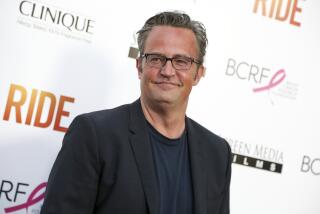Murray’s defense shifts strategies
- Share via
Attorneys for Conrad Murray have long argued that Michael Jackson gave himself the lethal dose of a surgical anesthetic. But on Wednesday, they acknowledged that one scenario they had previously suggested is not supported by science.
Murray’s attorneys told a judge in court, outside the jury’s presence, that they would no longer argue that Jackson could have drunk the anesthetic propofol. That is a change in course from what they had argued at earlier hearings: that the singer’s stomach contents strongly suggested that he swallowed the drug.
After consulting medical experts and commissioning an animal study, the defense announced it had ruled out that scenario.
Full coverage: The trial of Dr. Conrad Murray
“We are not going to assert at any point in time in this trial that Michael Jackson orally ingested propofol,” attorney J. Michael Flanagan said.
That leaves Murray’s defense attorneys with the other theory they had proposed — that Jackson injected himself with the propofol and swallowed another sedative when his doctor wasn’t looking. As a result, they argue, Murray cannot be held responsible for the pop star’s death.
“We believe the evidence will show you, the scientific evidence, that when Dr. Murray left the room, Michael Jackson self-administered a dose of propofol that with the lorazepam created a perfect storm in his body that killed him instantly,” attorney Ed Chernoff told jurors during opening statements last month.
Two medical experts who reviewed Murray’s care of Jackson for the California Medical Board said Wednesday that whether or not Jackson gave himself the fatal dose, the doctor was still guilty of egregious violations of standard medical care and responsible for his patient’s death.
Cardiologist Alon Steinberg and pulmonary and critical care physician Nader Kamangar both testified that leaving Jackson in a situation in which he could give himself the drug was unacceptable practice on the doctor’s part.
“We don’t give opportunity for a patient to self-administer,” said Steinberg, a Ventura County physician. “When you monitor a patient, you never leave their side, especially after giving propofol. It’s like leaving a baby that’s sleeping on your kitchen countertop.”
Steinberg rattled off a long list of factors that led him to conclude that Murray’s actions were an extreme deviation from standard medical care — treating insomnia with a surgical anesthetic, administering propofol without the necessary monitoring equipment, delaying calling 911 and making ineffective efforts at resuscitation once Jackson had stopped breathing.
“If these deviations were not to have happened, Mr. Jackson would have been alive,” Steinberg said.
Flanagan asked, to much objection from a prosecutor, whether Steinberg was aware of Jackson’s drug use or that he was a “habitual user” of the narcotic Demerol. The judge barred most of that line of questioning, but did allow the attorney to ask, “When you make these conclusions.... Do you know specifically anything about Mr. Jackson’s propensities toward drugs?”
“No,” Steinberg responded.
Kamangar, an associate professor at UCLA who is also a specialist in sleep medicine, said that for Murray to have given the potent anesthetic to treat insomnia was “inconceivable.”
“It’s kind of beyond a departure of standard of care to something that we would never even fathom doing,” he testified.
Echoing Steinberg and a coroner’s medical examiner who testified before him, Kamangar offered the opinion that had Jackson given himself the propofol, Murray would be just as culpable.
“In either scenario, Conrad Murray played a direct role in causing Michael Jackson’s death, those are your findings? Even under a scenario put forth by the defense that Mr. Jackson self-administered … that the risk of that happening should have been a foreseeable thing?” Deputy Dist. Atty. David Walgren asked.
“Oh absolutely,” Kamangar replied.
More to Read
Sign up for Essential California
The most important California stories and recommendations in your inbox every morning.
You may occasionally receive promotional content from the Los Angeles Times.











